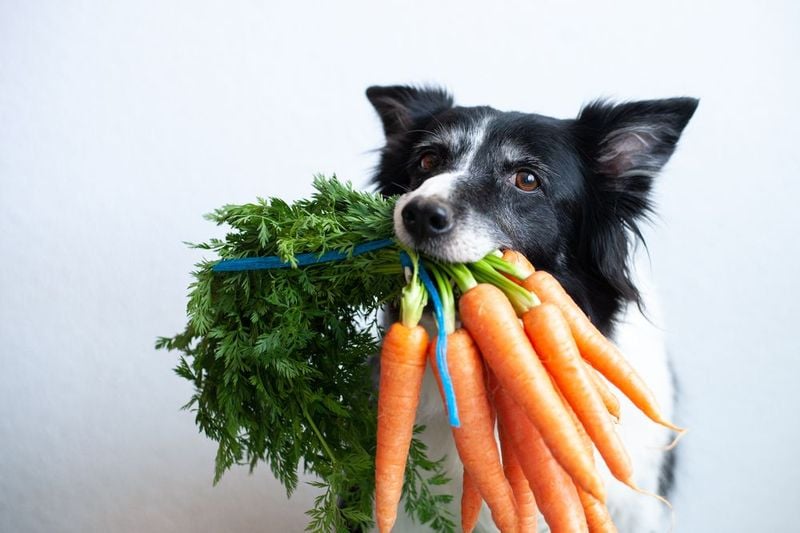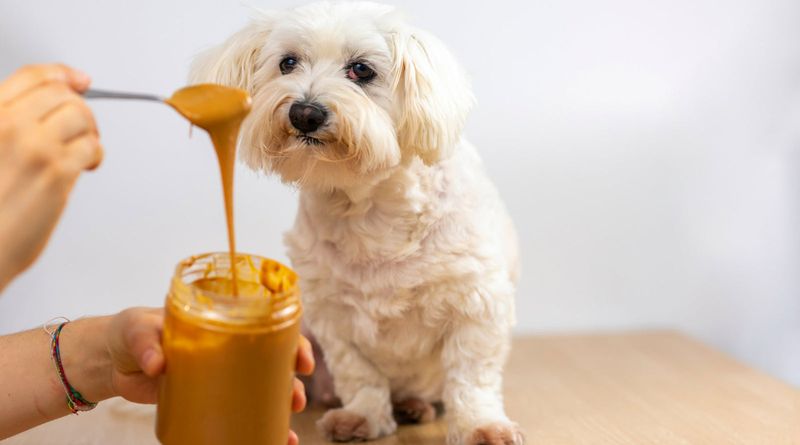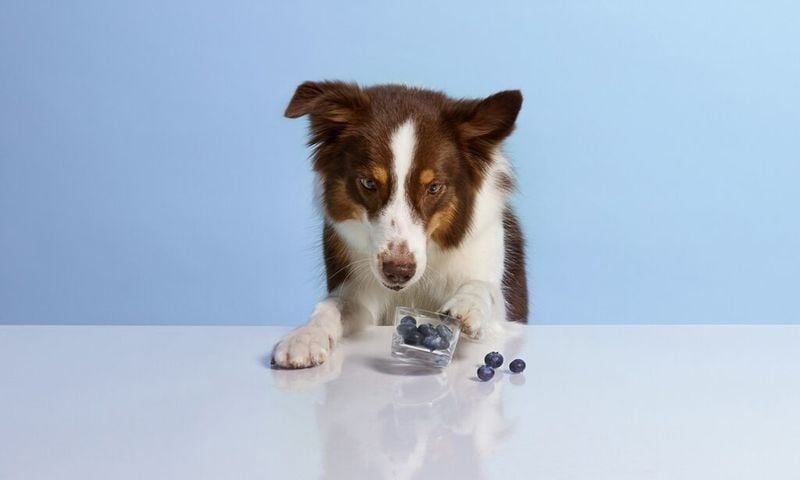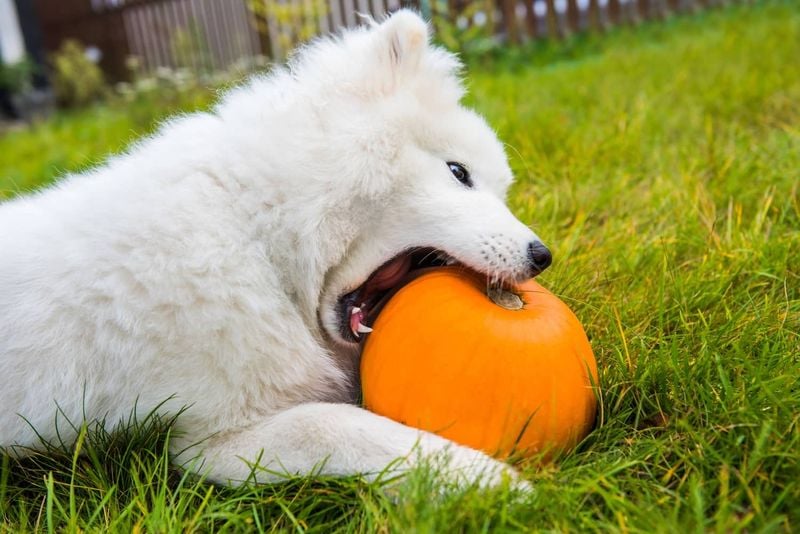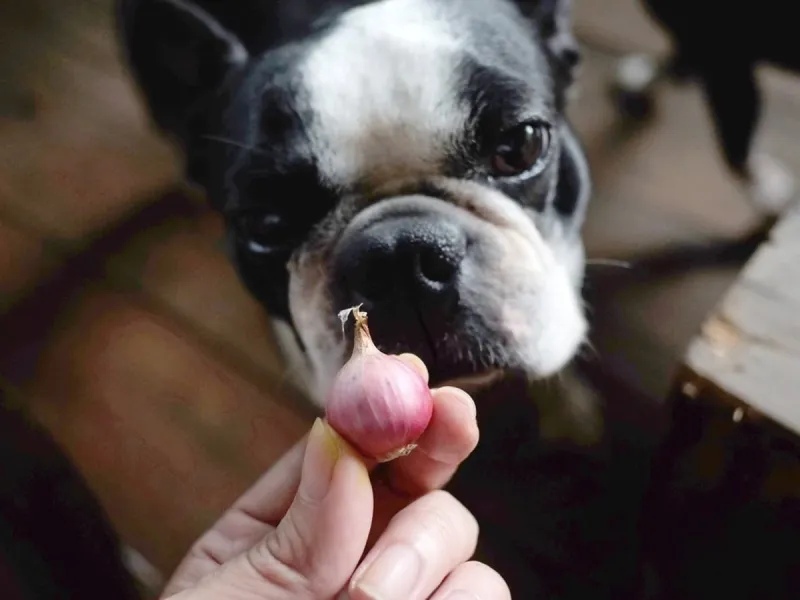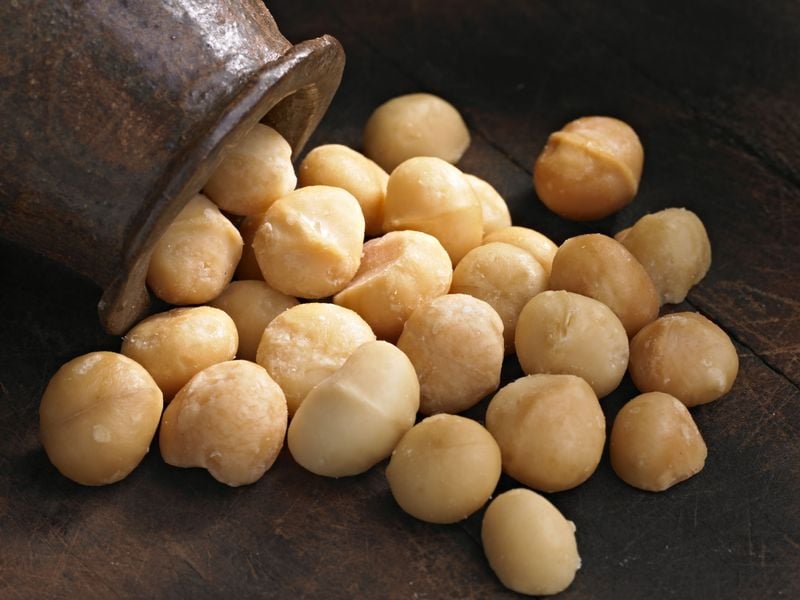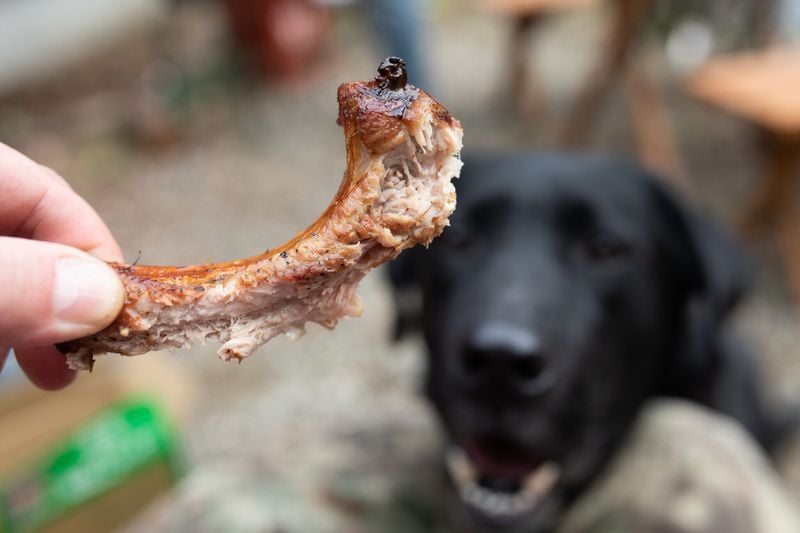The 7 Best Human Treats for Dogs—and the 7 Worst—According to a Vet
We all love spoiling our dogs—especially when those big eyes beg for a bite of whatever we’re eating. But not everything on your plate is safe for your furry friend, and some “harmless” snacks can do real damage.
That’s why we asked a vet to weigh in on the best and worst human treats for dogs. You might be surprised by what made the safe list—and what’s better left off the menu entirely.
Whether you’re rewarding good behavior or just can’t resist sharing a snack, it pays to know what’s actually healthy. Here are seven vet-approved human foods your dog can enjoy—and seven you should avoid at all costs.
1. Carrots
Carrots are one of the safest and healthiest human snacks you can share with your dog. Crunchy and naturally sweet, they’re loaded with beta-carotene, which helps support your pup’s vision and immune system.
Vets often recommend them as a low-calorie option for overweight dogs, and they also help scrape plaque off teeth during chewing.
Serve them raw as a crunchy snack, or cook and mash them for a soft treat—just skip the butter or seasoning.
2. Peanut Butter (Unsweetened, Xylitol-Free)
Most dogs go wild for peanut butter—and the good news is, it’s safe in moderation if it doesn’t contain xylitol. This natural sweetener is deadly to dogs, even in small amounts.
Stick to unsalted, unsweetened versions with simple ingredients. Peanut butter is high in protein and healthy fats, making it great for energy and coat health.
Use it to fill puzzle toys, mask pills, or as a training reward—but don’t overdo it due to the high calorie content.
3. Blueberries
These tiny fruits pack a nutritional punch. Blueberries are rich in antioxidants, fiber, and vitamin C, all of which support your dog’s immune system and cognitive health.
They’re low in calories and easy to portion, which makes them an ideal treat for training or hot summer days.
Plus, they’re soft and safe for dogs of all sizes. Just serve them fresh or frozen—no need for added sugar or syrup.
4. Cooked Chicken (Plain, Skinless)
Plain, cooked chicken is a go-to vet recommendation for dogs with sensitive stomachs or dietary restrictions. It’s easy to digest, full of lean protein, and can help build strong muscles.
Skip the seasoning, skin, and bones—these can irritate your dog’s digestive system or pose a choking hazard.
Shredded chicken also works wonders for picky eaters or pups recovering from illness, offering nourishment without upsetting their stomachs.
5. Pumpkin (Plain, Cooked or Canned)
Pumpkin is a canine superfood. It’s packed with fiber, which helps regulate digestion, making it useful for both diarrhea and constipation.
Just make sure you’re using plain, canned pumpkin—not pumpkin pie filling, which contains sugar and spices.
A spoonful mixed into your dog’s meal adds a dose of vitamins A, C, and E, plus potassium and iron. It’s a seasonal snack that’s helpful year-round.
6. Apples (No Seeds or Core)
Crisp, juicy apples are a hit with many dogs—and they’re a safe, nutrient-rich treat when prepared properly. Apples offer fiber, vitamin A, and vitamin C, which all support overall health.
Always remove the seeds and core, which contain trace amounts of cyanide and pose a choking risk.
Slice up apples into small, manageable pieces for a refreshing, hydrating snack that’s as fun to eat as it is good for them.
7. Oatmeal (Plain and Cooked)
For dogs with wheat allergies, plain cooked oatmeal can be a great alternative carbohydrate source. It’s high in fiber and contains vitamins like B6 and iron.
Oatmeal supports healthy digestion and can be especially beneficial for older dogs with tummy troubles.
Skip the milk, sugar, and flavorings—these add unnecessary calories or may upset your dog’s stomach. Serve it plain, cooled, and in small portions.
8. Chocolate
Chocolate might be your favorite dessert, but for dogs, it’s a toxic nightmare. It contains theobromine and caffeine—both of which dogs can’t metabolize effectively.
Even small amounts can cause vomiting, tremors, heart issues, and in severe cases, seizures or death.
Dark chocolate and baking chocolate are especially dangerous due to their high theobromine content. Never leave it within reach, and seek emergency care if your dog eats any.
9. Grapes and Raisins
Grapes and raisins are among the most mysterious and dangerous human foods for dogs. Vets still don’t fully understand why, but even a few can cause kidney failure in some dogs.
There’s no “safe” amount, and reactions vary from dog to dog. Symptoms include vomiting, lethargy, and decreased appetite—sometimes within hours.
Skip them entirely and keep them far out of reach, especially in baked goods or mixed snacks.
10. Onions and Garlic (Raw, Cooked, or Powdered)
These common cooking ingredients are harmful to dogs in all forms—raw, cooked, dried, or powdered. They contain compounds that damage red blood cells, potentially causing anemia over time.
Symptoms may not appear right away but can include weakness, pale gums, and breathing issues.
Even a small amount in leftovers or baby food can be dangerous, especially for smaller dogs. Always read labels carefully and steer clear.
11. Xylitol (Found in Gum, Candy, Some Peanut Butters)
Xylitol is an artificial sweetener that’s incredibly toxic to dogs. It causes a rapid release of insulin, leading to a dangerous drop in blood sugar, and can also cause liver failure.
It’s found in sugar-free gum, mints, baked goods, and even some brands of peanut butter.
Symptoms can begin within minutes—vomiting, stumbling, seizures. If you suspect ingestion, it’s a medical emergency. Always check ingredients before sharing.
12. Macadamia Nuts
Macadamia nuts may seem harmless, but they’re highly toxic to dogs. Just a few nuts can cause weakness, tremors, vomiting, and difficulty walking, especially in the hind legs.
Though the exact toxin is unknown, symptoms often show up within 12 hours. Most dogs recover, but some may need supportive care.
Never give mixed nuts or baked goods containing macadamias, and be cautious with nut butters and granola bars.
13. Alcohol (Even Small Amounts in Food)
Dogs are far more sensitive to alcohol than humans, and even small amounts can be dangerous. Whether in drinks, fermented foods, or cooked dishes, alcohol can cause vomiting, tremors, disorientation, and respiratory failure.
Dogs don’t process alcohol efficiently, and the effects set in quickly.
Don’t let your pup lick your glass or eat food cooked with wine or spirits. It’s not funny—it’s a fast track to the emergency vet.
14. Fat Trimmings and Cooked Bones
It’s tempting to share leftovers with your dog, but fatty scraps and cooked bones can lead to serious issues. Fat trimmings, even cooked, can trigger pancreatitis—a painful, potentially life-threatening condition.
Cooked bones are brittle and can splinter, risking choking or internal injuries.
Instead, offer dog-safe chews or plain, lean meat. Your dog will still feel spoiled, and you’ll avoid an emergency vet visit.

